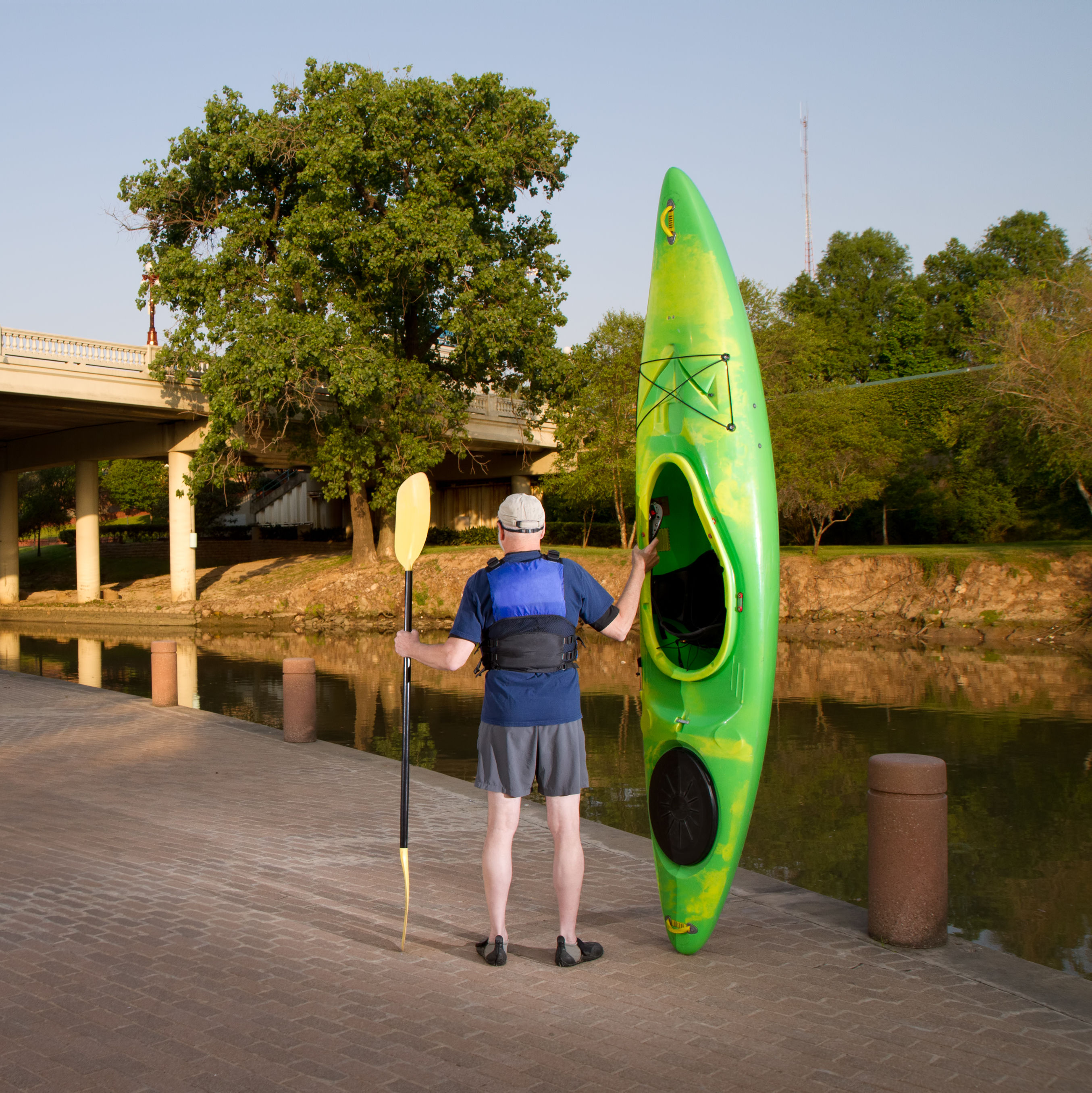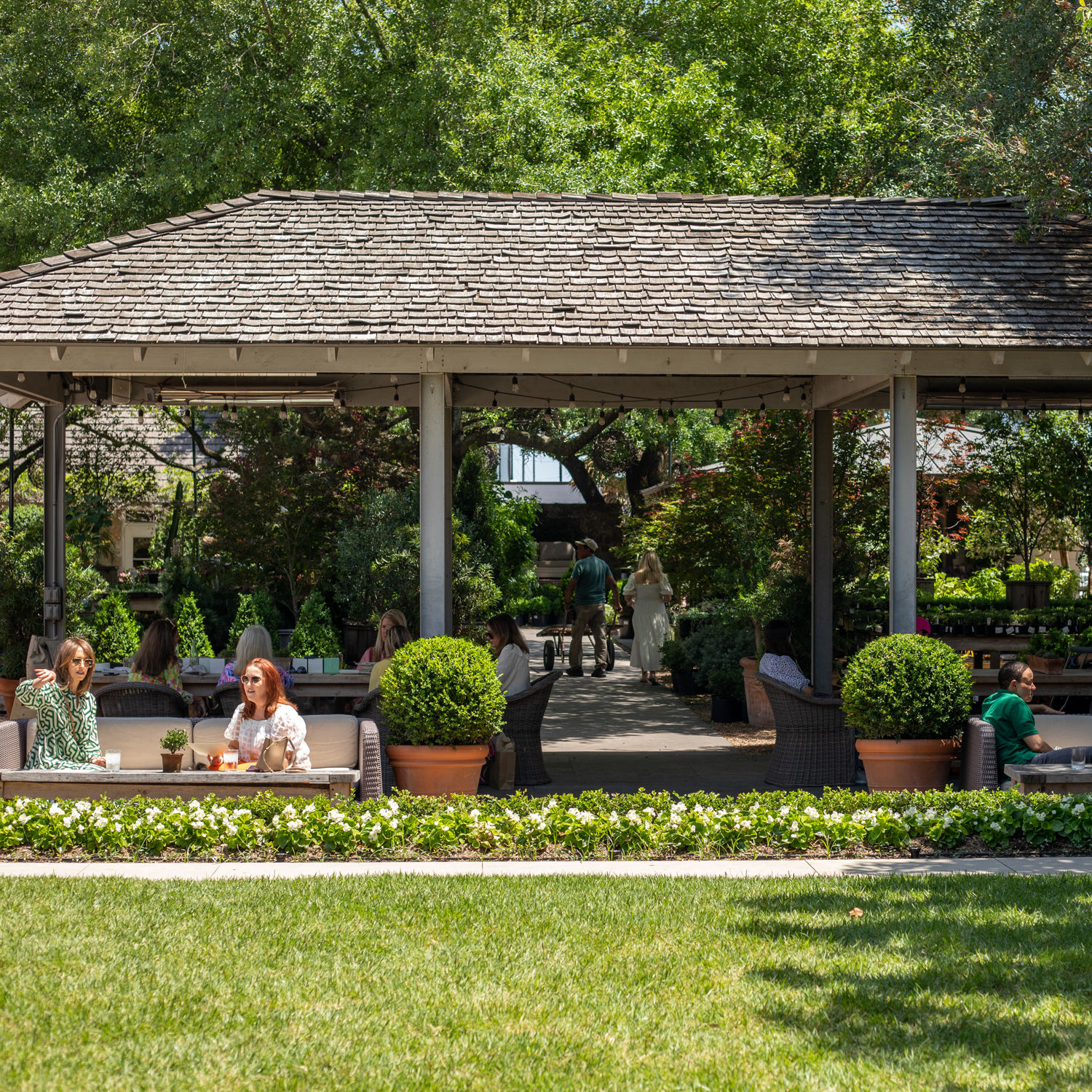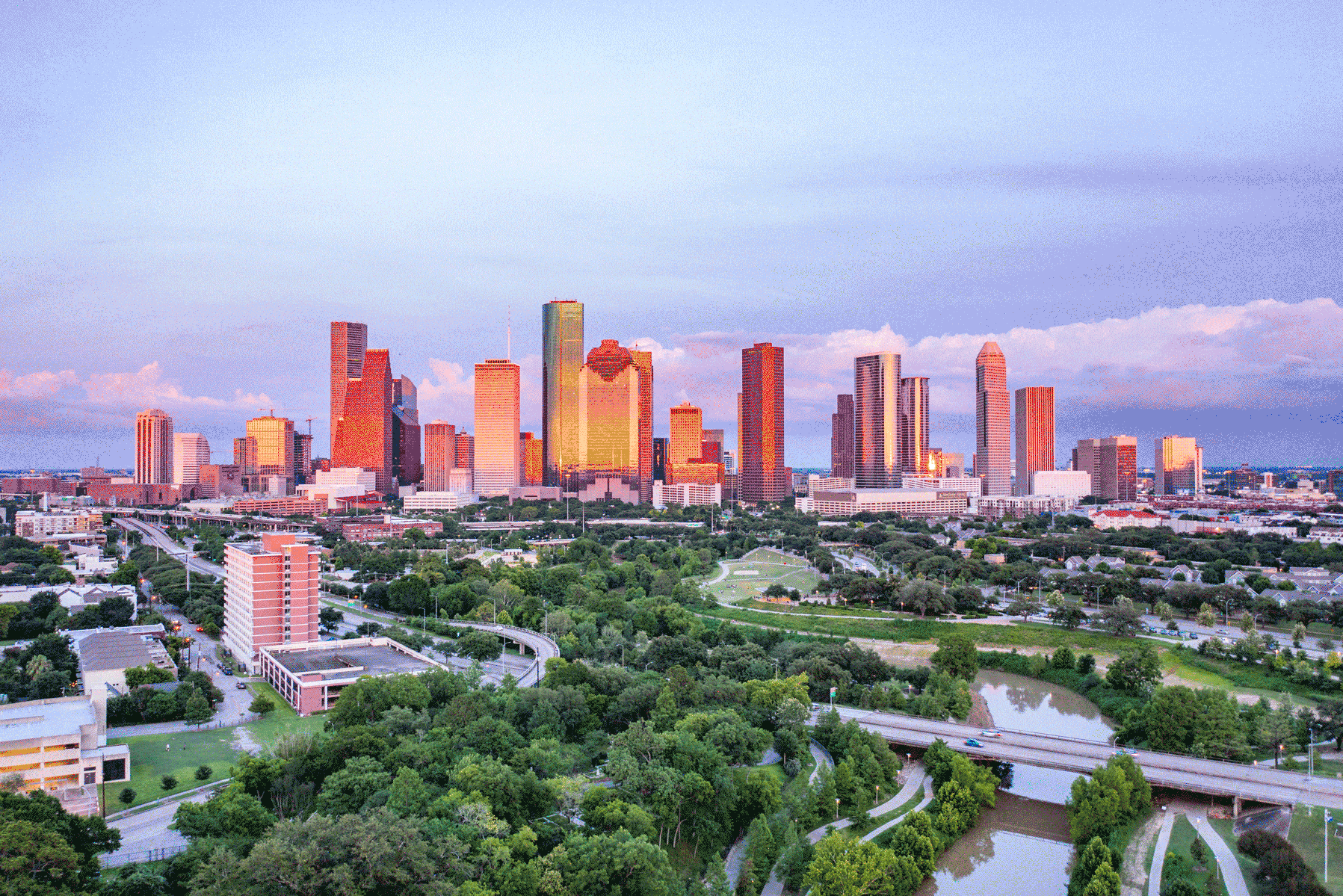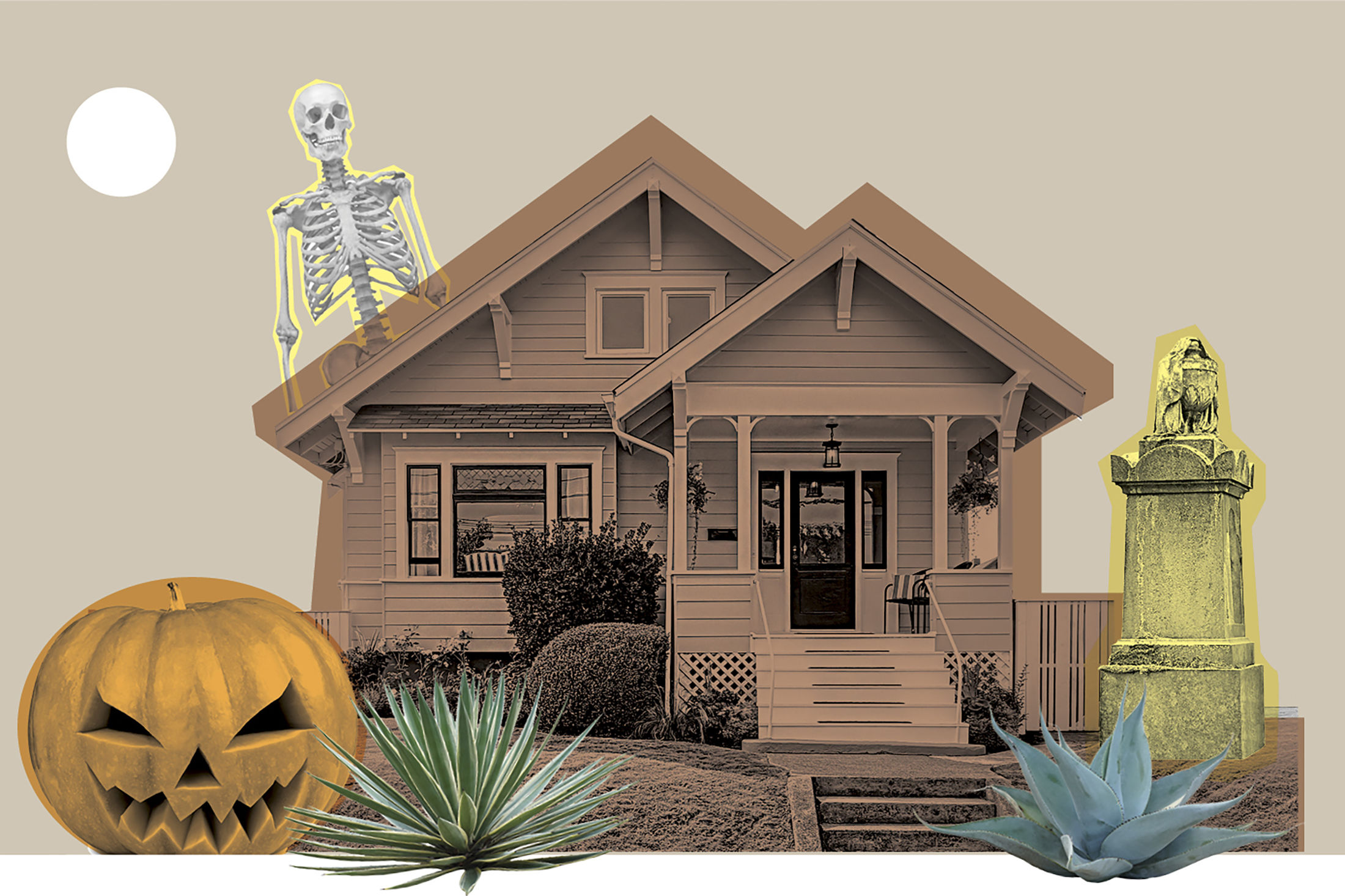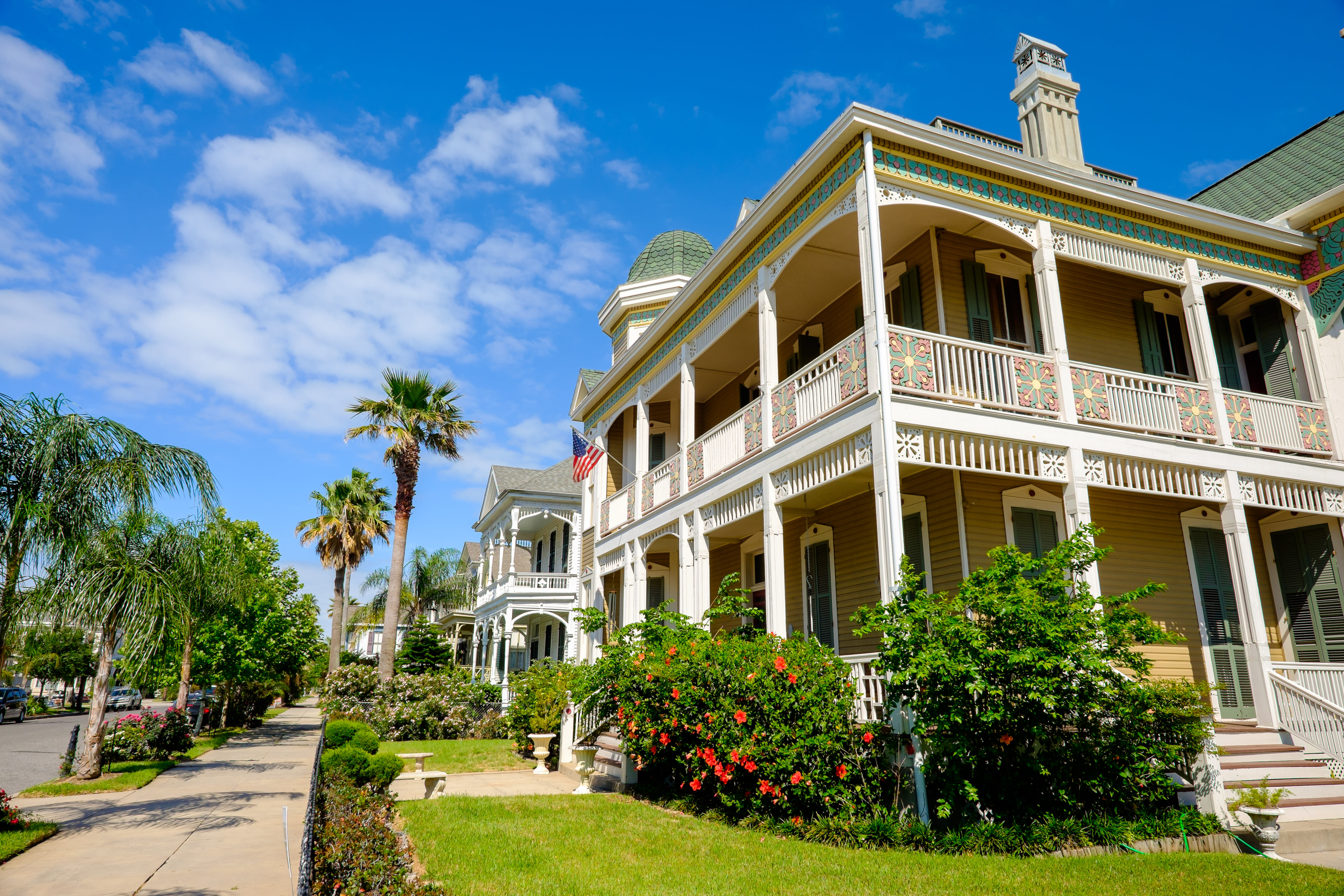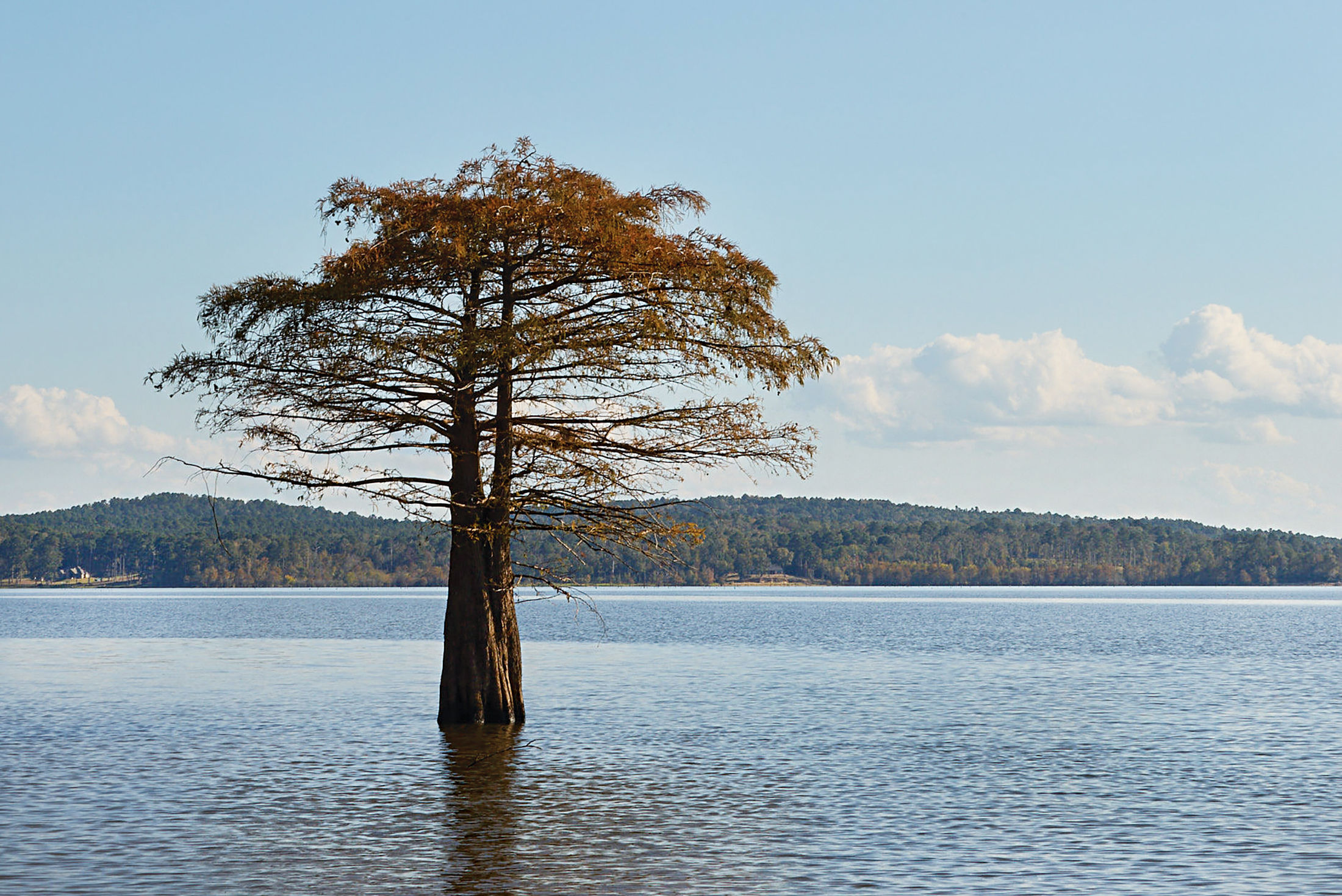The Best Spots for Stargazing That Houstonians Can Easily Drive To

Image: Sofia Gonzalez
For a place called Space City, Houston’s starscape leaves much to be desired. Like all urban areas, light pollution floods the night sky, sadly dimming our hopes of stargazing.
While a combination of this and unreliable weather can make seeing the stars challenging, amateur Houston astronomers shouldn’t count themselves out. Dark skies and chances to see the universe are within reach, but it will take a set of wheels. Pack your telescope, fill up your tank, and head to one of these cosmic destinations.
Houstonia has added Sylvan Beach Park to this update.
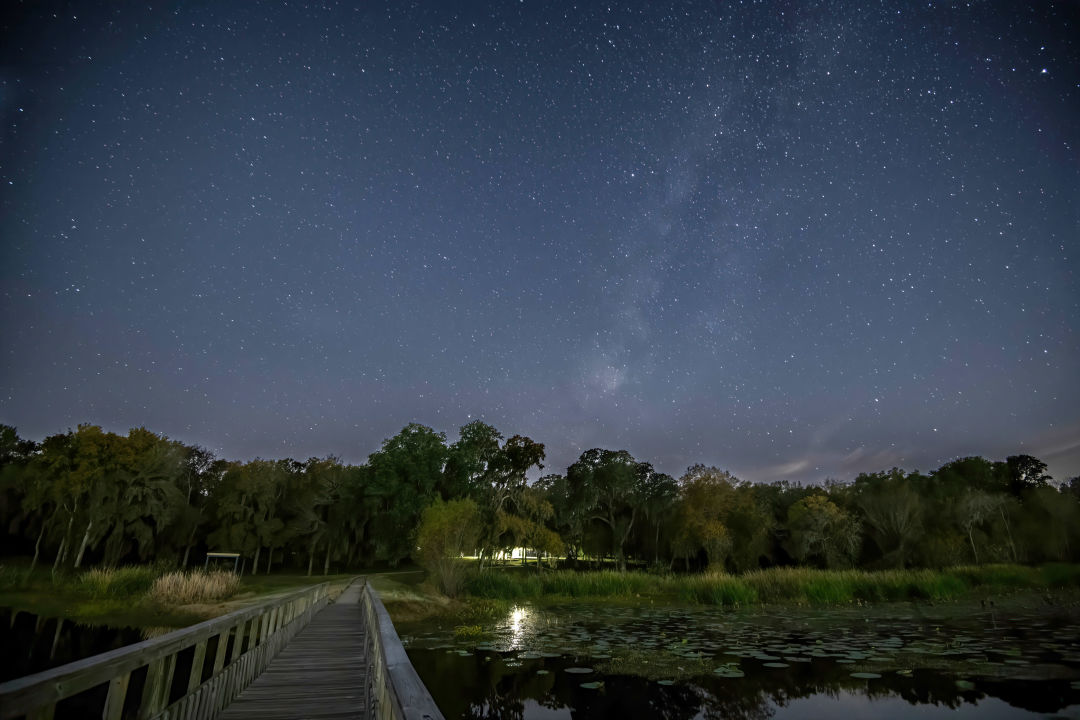
You don't have to drive far from Houston to see a starry night sky.
Image: David ODell/shutterstock.com
Brazos Bend State Park
Needville
If you’re looking for something close to home, Brazos Bend State Park is the ideal stargazing location. Less than an hour from Downtown, the city’s infamous light pollution is still slightly visible, but not so much that it ruins the viewing experience. Celestial enthusiasts can traverse the park’s many trails using their binoculars or settle down by the Brazos River with their telescope until the park's closing time at 10pm. But the stargazing technically doesn't have to end then. Make it an all-night ordeal and rent a campsite to sleep under the night sky.
Galveston Island State Park
Galveston
Although it's a city and an island in one, Galveston still proves to have some worthy stargazing locales. Galveston Island State Park is located far enough from the heart of the city, meaning it's possible to enjoy clear skies and spot constellations at night. Set up on the beach side of the park with binoculars, or stroll along the boardwalks while the stars shine down from above. This park makes a great the last stop before heading home after a long day of other outdoor activities. Or better yet, camp out for the night.
George Observatory
needville
Strolling through Brazos Bend State Park at night can give visitors the chance to spot a constellation or two, but sometimes you need a little guidance. A collaboration between the park and the Houston Museum of Natural Science, the park's onsite George Observatory is equipped with everything star seekers need to advance their astronomical education, including powerful telescopes, constellation laser tours, and on-site experts. Reservations are required, but on the off chance the chosen night has overcast skies, attendees are still in for an star-fueled experience: Guests can get a glimpse of previously captured images, take a tour of the dome, and explore the Milky Way exhibit.
Houston Astronomical Society Dark Site
Columbus
Located 80 miles west, the Houston Astronomical Society’s Dark Site is a hard-core astronomy buff’s dream with various stargazing resources. Access to the site requires membership and orientation training. Eager astronomy lovers who want to visit the observatory and its three telescopes must participate in an additional training course. But for those up for the commitment, the membership dues and training are a worthy trade-off for impeccably clear skies closer to home, plus invitations to special events, including picnics and observation field trips.
Sam Houston National Forest
new waverly
At first glance, a heavily canopied forest doesn’t seem like the ideal place to see the stars, but Sam Houston National Forest’s trees are the key to its stargazing greatness. Located an hour away from the city, the forest is far enough away that its tree canopy blocks Houston’s light pollution, meaning the stars are the only things brightening the night sky. Rent a campsite and stay overnight to enjoy the atmosphere at its darkest, and while you’re waiting for the sky to dim, make the most of the forest’s trails and lakes by hiking, biking, and canoeing the day away.
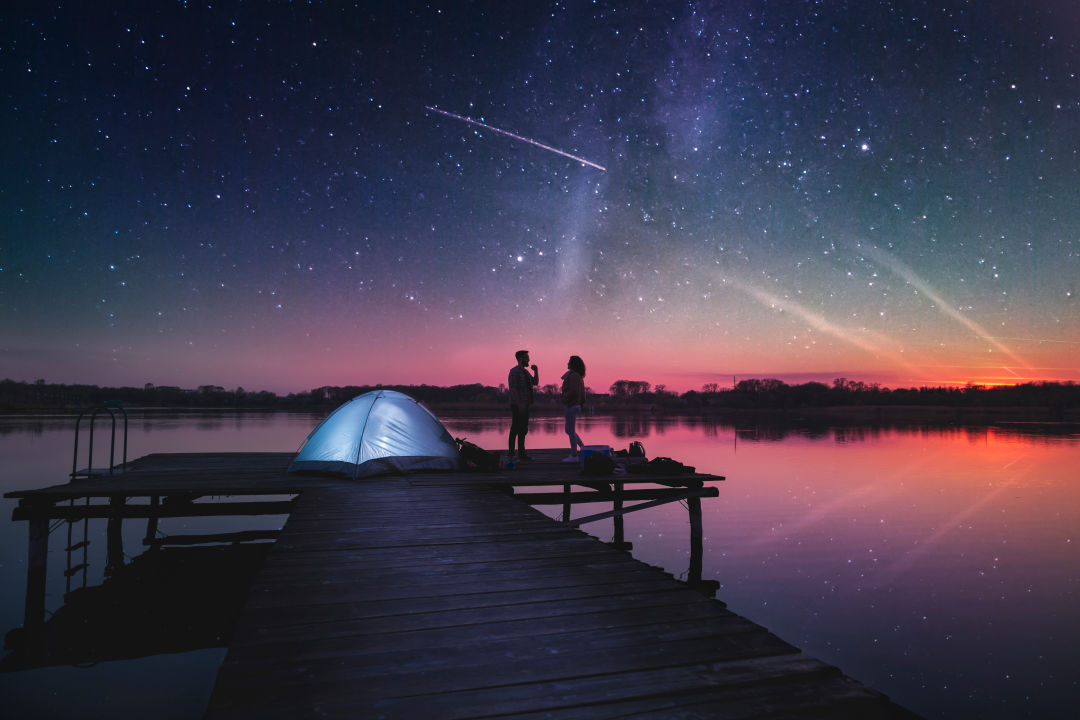
There's too much light pollution in urban areas like Houston, but drive out to the country and you're in for a treat.
Sam Houston State University Observatory
huntsville
Just a little over an hour north of Downtown, the Sam Houston State University Observatory offers open observatory nights for the public a couple times a month. Although it's free, reservations are required to visit, and cosmo lovers bringing their own telescope must obtain prior approval. Dealing with bad weather? Swap natural skies for the university’s planetarium, which provides free star shows to the public. While different from stargazing at the observatory, the shows provide an extra dose of interstellar educational content, covering topics like the how close space is to our daily lives and how our sky connects us all.
Sylvan Beach Park
La porte







